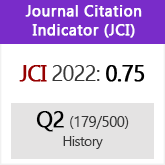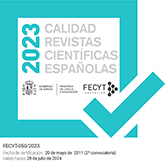De nación a imperio: La expansión de los Estados Unidos por el Pacífico durante la guerra hispano-norteamericana de 1898
DOI:
https://doi.org/10.3989/hispania.1997.v57.i196.686Keywords:
1898, United States, Spanish-American War, William Mckinley, U.S, Foreign Policy, Philippines Islands, International Relations in the Pacific.Abstract
1898 was the year of the Spanish-American War. For the United States that date has remain as the symbol of the beginning of their transformation from nation to empire. The war with Spain was the moment to adopt a new foreign policy. It supposed a bigger implication in the international scene and the consolidation of the U.S. interests in the Caribbean, in the Pacific and in the Far East. This process had a fundamental importance in the international history of the 20th century. The paper analyzes the international framework of the Spanish-American War. It studies the foreign policy of William McKinley and the politic, economic and ideological factors which urged to the expansion outside their continental frontiers. It connects the war in Cuba with war in Philippines, and devotes an special attention to three questions in debate: the Dewey attack to Manila, the consolidation of the victory and the annexation of the Philippines.
Downloads
Download data is not yet available.
Downloads
Published
1997-08-30
How to Cite
Elizalde Pérez-Grueso, M. D. (1997). De nación a imperio: La expansión de los Estados Unidos por el Pacífico durante la guerra hispano-norteamericana de 1898. Hispania, 57(196), 551–588. https://doi.org/10.3989/hispania.1997.v57.i196.686
Issue
Section
Monographies
License
Copyright (c) 2019 Consejo Superior de Investigaciones Científicas (CSIC)

This work is licensed under a Creative Commons Attribution 4.0 International License.
© CSIC. Manuscripts published in both the printed and online versions of this Journal are the property of Consejo Superior de Investigaciones Científicas, and quoting this source is a requirement for any partial or full reproduction.All contents of this electronic edition, except where otherwise noted, are distributed under a “Creative Commons Attribution 4.0 International” (CC BY 4.0) License. You may read here the basic information and the legal text of the license. The indication of the CC BY 4.0 License must be expressly stated in this way when necessary.
Self-archiving in repositories, personal webpages or similar, of any version other than the published by the Editor, is not allowed.














